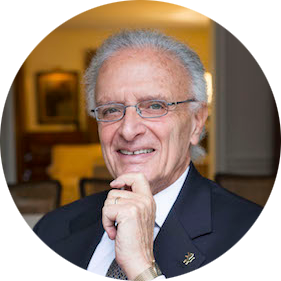
Mordecai Would Not Bow Down: Antisemitism, the Holocaust, and Christian Supersessionism
by Timothy Jackson
Review by David Blumenthal
Books in Protestant constructive theology are not so much expository writing as they are an extended conversation with varied sources on a theological theme. In this book, Timothy Jackson sets forth his theses in a sequence of conversations with Kierkegaard, Sartre, Goldhagen, Arendt, Neiman, Amartya Sen, Bloom, Shakespeare, Simone Weil, Anne Frank, and others, examining art, politics, gender, and other issues from the perspective of Jewish and Christian moral values. Using different rhetorical perspectives, Jackson returns again and again to his main theses, each time benefiting from the perspective of a new interlocutor.
Thesis 1: The refusal of the Jews to accept the moral authority of the other leads to antisemitism. Jackson uses Mordecai’s refusal to bow down to Haman (Esther 3:2) as the paradigm for this thesis. He grants that there are social, economic, psychological, and historical causes of antisemitism but Jackson maintains that they are not sufficient to account for the full phenomenon. The Jewish refusal itself is based on “their revolutionary commitment to the Other and the other,” and “the subordinating of eros to the love of God.” This leads to the relativizing of eros and the subordination of eros to a transcendent Good. Jackson calls this refusal the “original sin” of the Jews, the “offense of being chosen,” and the “redemptive identity” of the Jews.

Thesis 2: Jews and Christians were persecuted and exterminated by the nazis as icons of their beliefs. Nazi ideology expounded a paganism embodied in nature, social Darwinism, and Nietzschean virtues which was in direct contradiction with the moral monotheism embodied in a “revolutionary commitment to the Other and the other” of Jewish tradition. Christianity, like Judaism, demands the “revolutionary commitment to the Other and the other” and, with that, the subordination of eros to the transcendent Good. Thus, Jesus was killed by the Romans for the same reason that the Jews were gassed by the nazis. The ideology of Übermensch vs. Untermensch is categorically opposed to the doctrines of “Love thy neighbor as thyself” and “Love the stranger.” The Holocaust was, thus, not exclusively a matter of race but also of religion (n.b., Aryans who converted to Judaism were treated like Jews).
Thesis 3: Supersessionism, which sees Christianity replacing Judaism, as the new truth which supersedes the older truth, was wrong and leads to antisemitism. It is the approach of the Gospel of John. Supersessionism was wrong and leads to antisemitism. Consanguinity of Judaism and Christianity is the theologically correct stance and precludes religiously-based antisemitism. It is wrong in presuming the inferiority of the first revelation. Consanguinity is the coexistence of both revelations, each being true for its own community. This is the reconstructed view of Paul. The former theologically incites antisemitism; the latter precludes it theologically.
Antisemitism, together with many forms of “anti-Zionism,” are not just political conflicts. Rather, antisemitism, itself a euphemism for Jew hatred, is a deeply religious conflict; it is a clash of moralities.
There are also several sub-theses: Antisemitism represents a Freudian “return of the repressed,” a “patricidal liberation.” The purity of the Aryan race – physically, intellectually, and morally – required not only the extermination of the Jewish race and its corrupt culture but also the euthanasia of Aryans who were not fit to survive. The nazis also experienced joy in the suffering of others (Schadenfreude). This joy generated solidarity and fellowship, and reinforced the idea of “power through joy.”
As a Jew reading this, I can only answer “Amen.” Antisemitism, together with many forms of “anti-Zionism,” are not just political conflicts. Rather, antisemitism, itself a euphemism for Jew hatred, is a deeply religious conflict; it is a clash of moralities. And yes, Christianity in its non-supersessionist mode, is “guilty” of the same commitment “to the Other and the other.” If we must fight for that and suffer for that, so be it, as long as we fight and suffer together. ♦

David R. Blumenthal (retired) taught and writes on constructive Jewish theology, medieval Judaism, Jewish mysticism, and holocaust studies. He is the author of numerous scholarly articles and eleven books, a Senior Fellow at the Center for the Study of Law and Religion, and was the Jay and Leslie Cohen Professor of Judaic Studies at Emory University.
Recommended Citation
Blumenthal, David R. “REVIEW: Mordecai Would Not Bow Down: Antisemitism, the Holocaust, and Christian Supersessionism by Timothy Jackson.” Canopy Forum, December 3, 2021. https://canopyforum.org/2021/12/3/review-mordecai-would-not-bow-down-antisemitism-the-holocaust-and-christian-supersessionism/.

